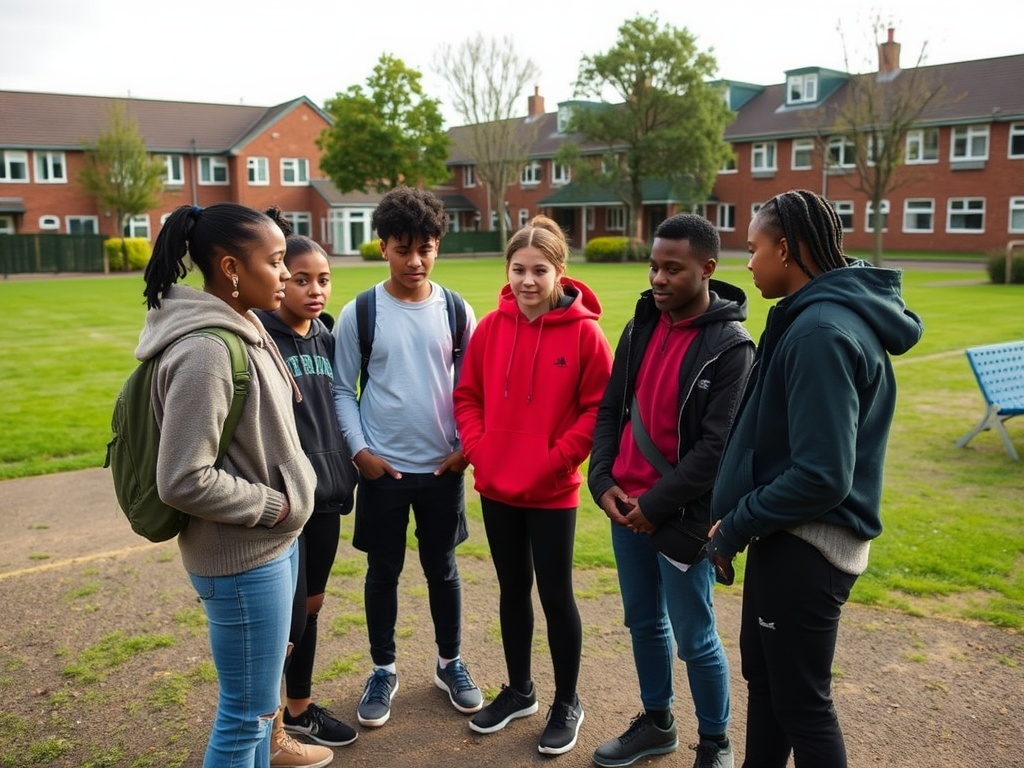Rising Concerns Over Knife Crime in Schools
Headteachers across the UK are increasingly alarmed at the rising incidence of knife-related incidents in schools. Many are now implementing weapons searches, conducting lockdown drills, and contemplating the installation of knife arches. This surge in violence has come into stark focus following the tragic stabbing of 15-year-old Harvey Willgoose at All Saints Catholic High School in Sheffield on February 3rd, a shocking event that has reverberated throughout the education community.
While school leaders have been aware of a long-standing increase in knife crime among youth, there is a growing concern that this trend is infiltrating school environments. A police source commented, “It’s definitely getting worse. There are so many stabbings you don’t hear about because no one dies. It makes sense that kids will carry knives into school, as they perceive their journey to and from school as dangerous.”
Pepe Di’lasio, General Secretary of the Association of School and College Leaders (ASCL), echoed these sentiments, noting that the instances of students bringing knives into schools are “definitely on the increase,” affecting areas beyond just inner cities. He added that many schools are now practicing lockdown procedures as a precautionary measure in light of this alarming trend.
“Many of my colleagues are finding it challenging to reassure their communities,” Di’lasio explained. “They have recently rehearsed lockdown situations, but parents are understandably anxious about these measures. This conveys a message that schools are worried, yet all schools aim to ensure maximum safety.”
Oliver Coppard, the Labour Mayor for South Yorkshire, has met with Harvey Willgoose’s parents, who are advocating for the installation of more knife arches in schools. He acknowledged the community’s fears following the tragic event but emphasized that he does not want schools to become “fortresses.” Coppard stated he will “follow the evidence about what works” and suggested a multi-faceted approach, including campaigns, discussions with young people, increased funding for youth programs, and possibly enhanced security measures in schools.
Knife Incidents and Teacher Preparedness

A recent survey conducted by Sky News revealed that one in five teachers in England has encountered students with knives on school premises. Alarmingly, only 15% of those teachers reported having received formal training to handle knife-related incidents. This gap in training highlights significant concerns regarding school safety.
In a separate incident, a 12-year-old boy was arrested in Stockport after videos surfaced showing him brandishing a large knife at school. Earlier this month, a 14-year-old girl was convicted for stabbing two teachers at a school in Carmarthenshire, Wales. Police investigations have also revealed that Axel Rudakubana, the Southport killer, had planned an attack at his former school before committing the heinous act that resulted in the deaths of three girls and injuries to ten others last summer.
Home Secretary Yvette Cooper has expressed her support for schools looking to enhance security through the installation of knife arches or detection wands. However, the government has yet to announce specific funding plans for such initiatives, and some experts remain skeptical about their overall effectiveness. A spokesperson for the education watchdog Ofsted revealed that they do not maintain records on the prevalence of weapons searches in schools.
“Many school leaders are grappling with how to manage this rising issue,” Di’lasio remarked. “There’s a significant amount of discussion currently, and the Home Secretary is considering knife arches. I’ve received numerous inquiries regarding whether these should be implemented, and it’s a tough decision.”
Di’lasio emphasized the importance of ensuring that the community understands the safety measures being adopted. He stated, “Many heads are trying to convey the right message to their communities while ensuring young people comprehend the steps being taken.”
Statistics and the Need for Strategic Approaches
According to Di’lasio, his organization has initiated discussions with Education Secretary Bridget Phillipson and will advocate for a comprehensive strategy to enhance safety in schools. This strategy includes a call for investing in youth workers and community programs.
“We need to ensure that schools are safe havens for children,” he added. “Recent incidents have highlighted the urgency of addressing this issue; we must invest in both preventative strategies and clear responses to incidents.”
The Youth Endowment Fund, established in 2019 with £200 million in government support, is tasked with addressing youth violence. Jon Yates, executive director of the fund, pointed out that while fatal knife attacks involving children remain rare, the psychological impact of incidents like Willgoose’s murder is significant, with one in five students reporting mental health issues, including anxiety and sleep disturbances due to fears of knife crime.
Yates shared that he has received numerous inquiries from headteachers contemplating the purchase of knife arches. However, he expressed skepticism about their widespread implementation in mainstream schools, stating, “There isn’t substantial evidence supporting the universal installation of knife arches.”
Limited Use of Knife Detection Devices
An Ofsted survey conducted in 2019 revealed that only seven further education colleges in London utilized knife detection wands, and just six employed knife arches, based on responses from 107 educational institutions. Given that there are approximately 25,000 schools in England, the limited use of these devices raises questions about their effectiveness and necessity.
Yates noted the findings from research, stating, “Where knife arches are in place, students are less likely to carry knives at school. However, paradoxically, these measures can also instill a sense of anxiety among students.” He emphasized the importance of maintaining positive relationships with students during searches.
“If a school faces a significant issue with students carrying knives, it may be appropriate to use knife arches,” he added. “However, such situations are likely confined to a small number of schools, predominantly not mainstream.”
Exploring Alternative Solutions
Yates advocates for alternative methods to address violence, emphasizing the efficacy of keeping at-risk children in school and providing individualized support, such as mentoring and social skills training. He criticized traditional interventions, like police talks during assemblies, as largely ineffective.
“School leaders often identify the students involved in knife incidents as predictable,” Yates noted. “The challenge lies in recognizing these students early and investing in their development.”
He expressed admiration for the Labour Party’s commitment to halving knife crime over the next decade and believes that government officials are genuinely committed to this goal. However, he stressed that effective measures must involve multiple government departments, including the Ministry of Justice and Children’s Services, necessitating a long-term financial plan.
A government spokesperson stated, “Violent incidents in schools are rare, but every school should be a place of safety and learning. The government is dedicated to halving knife crime over the next decade, having already banned zombie-style knives, progressing towards a ban on ninja swords, and implementing stricter age verification checks for online knife sales.”
Accessibility of Knives to Minors
Leaders in government, education, and law enforcement continue to express concern over the ease with which children can acquire knives. A 2022 investigation by consumer group Which? revealed that prohibited items like zombie knives, knuckle dusters, and swords were available for purchase online through platforms like Amazon and eBay. Even legal kitchen knives have been found accessible to underage buyers.
Axel Rudakubana, the Southport killer, managed to procure two 20cm blades from Amazon at the age of 17, utilizing encryption software to conceal his identity. In response to the ongoing crisis, Keir Starmer emphasized the need for stricter age verification measures, including mandatory ID checks.
Despite previous efforts by the Conservative government to tighten regulations regarding zombie knives and machetes, the scale of the problem remains significant. Police chiefs have reported that children can purchase knives through various social media platforms, including TikTok and Snapchat.
Previous government measures have included enhancing police powers to seize weapons found in private properties, rendering it illegal to possess, sell, manufacture, or transport zombie-style knives and machetes. The maximum penalty for possession of these and other banned weapons has increased from six months to two years.




